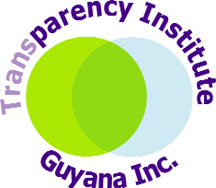In 2011, a Stabroek News feature article headlined the question; `Would Cheddi have sold his house for 120 million?’ The question was asked in relation to the former President’s Goedverwagting (dubbed Pradoville 1) property, a property that paled in comparison to the ostentatious ocean-view mansion that the President went on to construct in the much-derided “Pradoville 2” area. Some have estimated that this latter residence is valued in excess of one million US dollars at a time when the President was earning approximately US$5,000 dollar a month base salary as the country’s most senior public servant. The hefty price tag of the ocean view property therefore raises another comparative question, which is: Could Cheddi have afforded such a house on a public servant’s monthly salary? It is, of course, a legitimate question and one which every citizen has the right to ask, and have answered.

The need for an Integrity Commission may not be immediately apparent in Guyana, since no Minister, or other senior public servant in recent times, has ever been arrested, investigated, convicted or even fired for corruption. However, several international agencies and reports have highlighted the lack of implementation of existing Guyanese laws that provide for criminal penalties for corrupt public officials. Guyana has had a poor ranking in both the Latin American Public Opinion Poll and Transparency International’s Corruption Perception Index.
But in other neighbouring countries the importance of such institutions to combat corruption has been evident. For example, the Turks and Caicos Premier Michael Misick, now residing in a Brazilian prison, owned a mansion reported to be worth US $16 million. This acquisition is in stark contrast to Mr. Misick’s declaration in 2003 (at the time of his election), of only having $50,000 in assets. The investigation of Mr. Misick revealed a practice of corruption that was so acute that it reportedly brought the small island “on the verge of bankruptcy”. Costa Rica’s former President Miguel Angel Rodriguez has been accused of corruption, and several of former President Lula’s top aides have been convicted of corruption. Several presidents, including Nigeria’s former president Yar’Adua, have taken the bold step of publically declaring their assets before entering office in 2007. As a result citizens of Nigeria were fully aware of the President’s and his wife’s wealth. How many Guyanese citizens would be able to say the same?
Although many of these countries have diverse legal, political and socio-economic contexts, they all have sophisticated systems and procedures to address corruption. This is supported by well-documented evidence that their anti-corruption laws and systems work, normally by actions taken to deal with corrupt officials from the lowest to the highest offices.
The basis for many of the investigations and prosecution of high-level and grand corruption has been a constitutional and legal framework backed by greater demands for accountability from citizens, the media and civil society groups. Asset declaration has become a standard practice in many developing countries as it is seen as a powerful tool in the fight to combat corruption. According to an OECD paper, asset declaration helps to increase transparency and build trust among citizens in public administration, it helps to prevent conflicts of interests and maintain the integrity of institutions, and to monitor irregular wealth variations of public servants. It is generally a measure to dissuade theft.
Sixteen years ago, Guyana enacted the Integrity Commission Act, which was created to ensure the integrity of Guyana’s public office and to instill public confidence in our public servants. To date the Act has not been realized because of the half-hearted approach that has been taken to establish, resource and ensure the integrity of the Commission itself. Despite the fact that President Ramotar publically stated that “corruption is a problem” in Guyana, he has not advanced any significant effort to tackle corruption.
According to the Act, unacceptable conduct includes: taking bribes or favours; engaging in discriminatory practices; receiving gifts for reward for services; conflict of interest; using documents or information for personal benefit; using public property for private use; engaging in sexual misconduct; and giving private interest a higher priority than public duty. Some members of the Opposition have called for the Act to be amended to obligate ministers of government, customs officers and senior police officers to reveal their assets and have them gazetted. Public asset declaration should start in the highest offices and must include government ministers who should lead by example. Several private sector entities have also called on the Commission to be established as the absence of an active Commission is negatively impacting on Guyana.
By June 30th every year, public officials are required to declare how much money they make and their assets as well as those of their spouses and children. All gifts received by public officials abroad are to be vetted by the Integrity Commission to determine whether those gifts are personal, or whether they are the result of corrupt activities. As reported in the local media, Guyanese public officials have been given until August 23rd 2013 to declare their assets. The integrity of Guyana’s government and public sector hinges on the state’s ability to implement and enforce the Integrity Act. As such its implementation should be done without delay.
For more information on the Integrity Act and to share your views and opinion on Guyana’s defunct Integrity Commission please visit our Facebook page at www.transparencygy.org.
